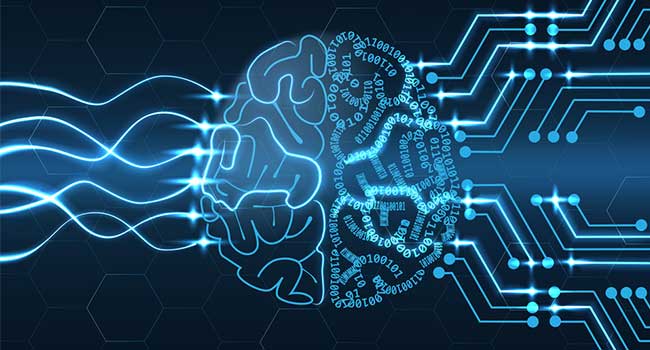
How to Know When AI Is the Right Solution
- By Anurag Gurtu
- Jan 03, 2022
Given the hype surrounding artificial intelligence (AI), many are following the bandwagon without considering whether their system truly requires the novel tech or not. The reality is that while AI is very versatile and useful, not all situations demand using this approach. In fact, not every organization or team is ready to integrate AI successfully, even when there is an obvious need for it.
To determine whether AI is the right solution, below are six pointers to consider:
1. Consider your user's needs
First, it's crucial to determine whether AI is not just another tool you are introducing. Before you can create a successful service or product, it's paramount to recognize the user's needs. If your team sees AI as appropriate, look into your available data to determine the specific technology to use. From there, an appropriate AI model can be developed by your data scientists.
Also, consider if there is sufficient data for evaluation and for the model to learn from. In addition, it's necessary to determine whether the available data is safe and ethical to use (you may refer to the Data Ethics Framework). If a task is not large and a human can handle it effectively without stress, there might be zero need for AI. Keep in mind, using AI for your project should provide information to the team to achieve solutions to real-life challenges.
2. Integration into an existing ecosystem
Before data analysis can be carried out, it's necessary to access the data. Sometimes, the process of integrating AI into existing software or database can be expensive and time-consuming. Thus, it's often recommended to choose software with open API architecture.
For some AI software platforms, there are marketplaces where a series of plugins are available for commonly used software systems. It's required to provide administrator credentials to create a connection. In this case, you don't need custom development. Hence, you can get started quickly with no budgetary consequences. Nevertheless, it's important to determine if AI will complement your ecosystems successfully. Otherwise, the team might be spending time on a non-productive approach.
3. Check your existing data state
It's necessary to work with specialists to understand the available data and their state. Before data can be considered useful for the AI model, it must be accurate, complete, valid, relevant, timely, unique, a good representation of the current situation, consistent, and large enough for analysis. For business challenges that require an ongoing decision process, the team needs to create continuous and current data access to utilize the AI model successfully. Also, you must adhere to the data protection laws that apply in your region.
4. A purchase or build decision
While making your evaluation, consider whether purchasing an AI software technology will help meet your users’ needs. If so, you need to work on your purchase strategy as your team will do for other technology purchases.
Also, check if you're trying to meet unique need to your brand or if it’s generic, and look into the maturity of the commercially available products that meet such needs. Additionally, the ethical concerns of using such AI tech must be considered right before the procurement process.
If you need to build, ensure that you work with a data scientist and determine whether your team can develop an AI project in-house. Furthermore, the team must be able to operate and maintain the AI solution in-house.
If the situation requires purchasing, you may consider getting an off-the-shelf product. This is recommendable if the AI is a common application, such as a model for optical character recognition. However, endeavor to look into your existing data carefully before making a purchase. In some cases, the supplier might need to tailor the software to your needs or build something new from scratch.
5. AI project’s responsibility and governance
Before you can make a final decision on whether an AI tech is the right solution or not, you need to consider governance and allocation of responsibility. For instance, there should be a team or personnel who would be responsible if the selected data fails to train the model or fits for the deployment.
Furthermore, the governance and responsibility team must be able to monitor the AI tech in achieving its business objectives and purpose, and be responsible for a clear accountability framework regarding models that are in production. It’s also the responsibility of the team to test, monitor, and review the framework. If the algorithms are not robust enough, explainable, and fair, the team needs to make the necessary report. The governance team must determine if the project fits what the owner of the data expects their information to be used for.
6. Choose the right skills for AI assessment
From the pointers listed above, it’s apparent that an organization will need various teams with different skills. This includes both hard and soft skills. Among the essential groups are data scientists, domain knowledge experts, and the governance team. While the duties of the governance team have been discussed earlier, data scientists must have a good knowledge of the available data and how to use it to resolve an existing problem. As for a domain knowledge expert, the service is needed to deploy AI model results in a known environment.
Conclusion
Irrespective of the industry a business belongs to, there is no one-size-fits-all AI solution. A proper assessment is necessary to determine whether an AI model or tech will help meet expectations and needs of end-users or customers. If AI technology does not make any meaningful and cost-effective solution to your challenges, think twice before making the final call. Consider the six assessment keys shared above to make an informed decision concerning the use of AI for your customers' needs.